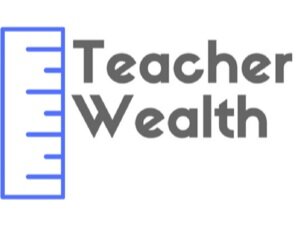Post Election: Student Loan Update
Now that the election is over we can make a few educated guesses on what the likely future for student loans are.
Things are still foggy, but we know more than we did last week. Remember a lot can change quickly in student loan world so if you are reading this weeks or months after the 2024 Election be warned that many of these things may (and probably) have changed.
I organized this in a question/answer format to make it easier to understand and identify what is most relevant to your specific situation.
I'm on PSLF, will that be repealed?
No. That risk is very minimal.
Even though Republicans have control of the President, the Senate, and the House, (Which seems most likely as I write this.) even if they tried to repeal PSLF they will not have enough votes needed (60) in the Senate because of the filibuster.
PSLF is law. So it is not going anywhere unless Congress is willing to pass legislation changing that.
I have not heard of any Republicans publicly arguing for repealing this program. At least not recently.
Will SAVE be repealed?
Yes, that now seems very likely.
The courts were already expected to do that. The Trump administration probably would let that stand and not repeal to the Supreme Court. (Where, alternatively, a Harris administration would probably have repealed and tried to do other things within their power to help borrowers while the court challenges are exhausted.)
Even if the courts don't repeal SAVE many that follow this closely think the Trump administration would work to repeal it using other ways. Because President Biden went outside of Congress to create SAVE, President Trump could use the same methods to get rid of it. This process would take longer, probably into 2026 or even 2027 before everything would be finalized.
What would the courts or a Trump administration replace SAVE with?
This is the big question.
Some think nothing. So there would be limited paths to go the forgiveness route. There will be at least one forgiveness path (IBR) because that repayment plan is coded into law by legislation. That path just won't be as good for the borrower as SAVE. For some the result would be that student loan forgiveness is no longer a good choice for them and paying loans back as quickly as possible would be best.
Others think it may go back to what it was like before SAVE was created. (Having REPAYE, PAYE, etc. as repayment plan options.) This could keep things complicated and very dependent on each borrower's situation.
Even if one of those two scenarios play out a Republican Congress could always pass legislation based on their views of what the student loan forgiveness options should look like. Once again, there would have to be at least some bi-partisan support to get something passed because of the Senate filibuster.
I'm currently on SAVE and my payments are in forbearance. Now what?
You are in good company. Many are in this situation.
Right now your payments have been paused and interest is not accruing on your balance. (The good news.)
If you are PSLF eligible, these months don't count for the 120 months you need for forgiveness. (The bad news.)
You need to decide whether it makes sense to sit tight or take action soon to make your situation better. The details of your situation will determine what is best for you.
I'm on SAVE and planning on paying my loans off. What should I do?
It probably makes sense to sit tight in case the courts or politicians do something unexpected.
You can always start saving what your monthly payment would be in a high yield savings account until things become clearer. If it ultimately makes sense to pay your loans off completely you have some savings to throw at it.
I'm on SAVE and was planning on going the forgiveness route under PSLF. What should I do?
There is a decent chance you are still a good candidate for PSLF forgiveness.
The higher your household income (and the lower your family size) the lesser the chance of being a good candidate.
You may have to change from SAVE to another income-driven repayment plan (Probably IBR.) and your payment may go up from what it would be under SAVE but your original plan of forgiveness may still be in play.
Some calculations and comparing the options available need to happen to get to the answer.
The difficult question is how soon to move from SAVE to IBR if that is an option for you. I think listening to what Republican politicians say in the next month or two will give us a decent framework to make that decision.
I'm on SAVE and only a few months away from working the 120 months for PSLF qualified employment. What should I do?
PSLF has a buyback program. That may be a way to get loans forgiven in the same timeframe as originally assumed under SAVE. You essentially buy back those months that are currently not counting for the 120 months needed for PSLF forgiveness.
This program cannot be attempted until you have worked the full 120 months.
I have not had any clients use this strategy before but we are about to try it with someone. So fingers crossed.
Many think this opportunity may go away so the time window may be short to take advantage of this.
